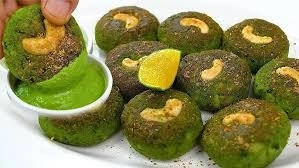International Vodka Day is celebrated on the first Saturday of October each year, offering enthusiasts and casual drinkers alike an opportunity to appreciate this beloved spirit. Vodka, often associated with Russia and Eastern Europe, has an intriguing history and a wealth of unique characteristics that many may not be aware of. For starters, while vodka is often thought to be a purely Russian invention, its origins can actually be traced back to various regions, including Poland and Sweden. The word “vodka” is derived from the Slavic word “voda,” meaning “water,” which is fitting given its clear, neutral appearance.
One fascinating fact about vodka is its versatility in cocktails. While many people may think of vodka primarily in terms of classic drinks like the Moscow Mule or Bloody Mary, it can be mixed in a plethora of creative concoctions. Vodka’s neutral flavor profile makes it an ideal base for a wide range of cocktails, allowing other ingredients to shine through. Furthermore, vodka can be infused with various flavors, from fruits and herbs to spices, providing endless possibilities for experimentation and enjoyment.
Another interesting aspect of vodka is its production process. Unlike many spirits that are distilled from grains or fruits, vodka can be made from a variety of raw materials, including potatoes, corn, rye, and even grapes. This diversity in ingredients contributes to the distinct taste profiles of different vodka brands. Additionally, the distillation process plays a crucial role in defining the quality of vodka. High-quality vodkas are typically distilled multiple times and undergo rigorous filtration, resulting in a smooth and clean spirit that can be enjoyed neat or in mixed drinks.
On a cultural note, vodka holds significant importance in various traditions and rituals around the world. In countries like Russia and Poland, vodka is often consumed during celebrations and social gatherings, symbolizing hospitality and friendship. It is common to engage in toasts, known as “zakuski” in Russian culture, where small bites of food accompany the drink, enhancing the overall experience. This cultural significance adds depth to the enjoyment of vodka, transforming it from a mere beverage into an integral part of social interactions and festivities.
In conclusion, International Vodka Day is not just a celebration of a popular spirit but also an opportunity to delve into the rich history and cultural significance of vodka. From its diverse production methods to its role in social rituals, vodka offers a fascinating glimpse into traditions that span the globe. So whether you prefer sipping it neat, mixing it into a cocktail, or enjoying it with friends during a toast, take a moment on this special day to appreciate the unique qualities that vodka has to offer.




